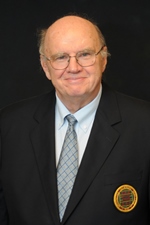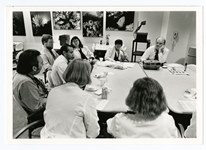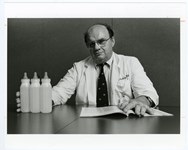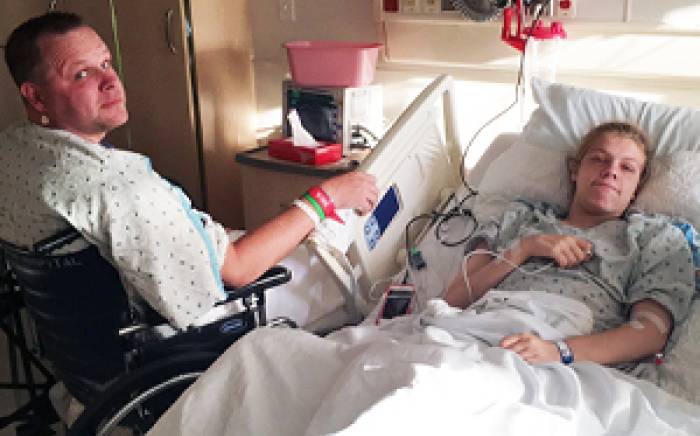 For hundreds of medical students and countless patients and their families, James P. Keating, MD, was the ideal of what all physicians should be: intelligent, wise, caring, passionate about his profession, humorous—sometimes stern—and always ready to listen, offer advice and tackle difficult situations with Pit Bull tenacity.
For hundreds of medical students and countless patients and their families, James P. Keating, MD, was the ideal of what all physicians should be: intelligent, wise, caring, passionate about his profession, humorous—sometimes stern—and always ready to listen, offer advice and tackle difficult situations with Pit Bull tenacity.
Dr. Keating passed away on December 25, 2014, in Cary, N.C., leaving behind a legacy that will live for years to come through the physicians he trained and the children he helped. He was 76. Dr. Keating, a professor emeritus of pediatrics at Washington University School of Medicine and the inaugural W. McKim Marriott, MD, Chair in Pediatrics at St. Louis Children’s Hospital, died from a pulmonary embolism.
“Jim was, in my opinion and in the opinion of many (perhaps all), the finest physician and ‘heart and soul’ of our Department of Pediatrics in its 105-year history. He also was the finest physician and standard bearer of Children’s Hospital over the past 45 years,” says Alan Schwartz, PhD, MD, Pediatrician-in-Chief at St. Louis Children’s Hospital and the Harriet B. Spoehrer Professor and Chairman of the Department of Pediatrics at Washington University School of Medicine. “Jim had incredible passion to be the best physician for children and insatiable curiosity. He was simply ‘the best.’ He had one standard, and that was ‘excellence.’ In so many ways he was my hero.”
 Dr. Keating’s stellar career at SLCH/WUSM began in 1968 when he was recruited as chief resident. He became director of the pediatric residency program in 1969 and held that position until 2002. He was one of the longest-serving, most successful residency directors in the history of pediatrics, a position that demanded enormous resilience and commitment. His vigilance for caring for children led to his recognizing the need to establish three groundbreaking pediatric clinical programs at Children’s Hospital:
Dr. Keating’s stellar career at SLCH/WUSM began in 1968 when he was recruited as chief resident. He became director of the pediatric residency program in 1969 and held that position until 2002. He was one of the longest-serving, most successful residency directors in the history of pediatrics, a position that demanded enormous resilience and commitment. His vigilance for caring for children led to his recognizing the need to establish three groundbreaking pediatric clinical programs at Children’s Hospital:
- The pediatric gastroenterology and nutrition division in 1971, for which he served as division chief until 1992.
- The first pediatric intensive care unit west of the Mississippi, serving as director from 1980 to 1992.
- The pioneering concept of pediatric diagnostic medicine, founding the division in 1992 and serving as its director until his retirement in 2012.
 Digging for elusive answers in medicine was a passion. Keating and his colleagues discovered a significant cause of water intoxication — a potentially fatal condition — in infants. They found that 3- to 6-month-olds living in poverty suffered the illness disproportionately because their caretakers were more likely to run out of formula and instead feed infants water. The finding led doctors nationwide to educate parents and caregivers about the dangers of excessive water intake by infants.
Digging for elusive answers in medicine was a passion. Keating and his colleagues discovered a significant cause of water intoxication — a potentially fatal condition — in infants. They found that 3- to 6-month-olds living in poverty suffered the illness disproportionately because their caretakers were more likely to run out of formula and instead feed infants water. The finding led doctors nationwide to educate parents and caregivers about the dangers of excessive water intake by infants.
In addition, Dr. Keating conducted research that often changed the trajectory of patient care. He earned numerous honors, including the SLCH medical staff’s Distinguished Service Award for exemplary dedication and service to the hospital’s mission and the Washington University Distinguished Faculty Award – Distinguished Educator Award for House Staff Teaching. In 2008, the James P. Keating Endowed Professorship in Pediatrics was established, and the James P. Keating, MD, Outstanding Resident Award was initiated in 1998.
For Dr. Keating, however, his crowning achievement was teaching, and his former residents are proof of the profound influence he had on pediatrics. Many have gone on to senior leadership positions at major academic medical centers or have established successful private practices in communities throughout the country. And many, such as Katie Plax, MD, director of the division of diagnostic and adolescent medicine at Children’s Hospital, consider him the most influential mentor of their professional careers, as well as being a treasured friend.
“My office was next to Jim’s for the last 10 years he was here. He’d stop in to talk, and he’d frequently follow up on our conversations by providing me with relevant articles. It was one of his ways of giving me encouragement. He’d write a note, ‘Read and toss.’ I saved most of them, of course,” she says. “We also spent time together in his office watching birds in Forest Park through the binoculars he always had handy. These are memories of Jim I will never forget.”
Keating was born in Braddock, Pennsylvania, a mill town. His father was killed in a mill accident when Keating was 11, leaving his mother to raise four children on her own.
He earned an academic scholarship to Harvard, where he played football. After earning his undergraduate degree, he was accepted to Harvard Medical School. Following his medical school graduation, he worked at Massachusetts General Hospital and then served as a Navy lieutenant at a civilian hospital in Vietnam during the Vietnam War. Among other honors, he received the Navy Commendation for Valor.
After retiring in 2012, Keating moved to North Carolina.
His survivors include his wife, Susan; daughter, Amy Keating Foote; son, Thomas Keating; sister, Mary Sommerfeld; and brothers Larry and Jerry Keating.
His family plans to hold a celebration of his life in the coming months in St. Louis.












